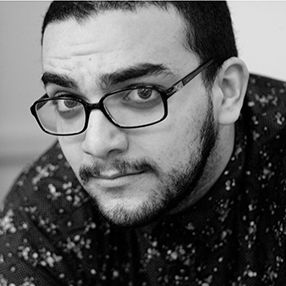Interrogation of an Alternate Timeline
On a dusty rooftop in Giza, I tell Imam,
in another life, he and Hugh would have been
the best of friends. I picture Hugh, taking him
by the arm down the corniche
or the Cape, the cool night air refusing
silence. I hear their strings and tubes cutting through
beaming crowds in Imbaba and Soweto. Miriam
is serenading an open sea, clicking to the wind
by El Montaza. I see Biko
and Negm, side by side, in a crowded auditorium,
a whole generation huddled
around their voices. This is to say, in another
life revolution would be but
abstract. Biko would be a doctor,
perhaps in Durban. There would be no trains
for Hugh to sing of, save for those
that would bring him back to his loved
ones, safely. Negm would only be known
for love poems. What more
could one ask for? Let us not cheer
for those who would rather die
as soldiers when there is no
war. My whole life I have envied
the kind of thirst for music
that can be quenched by
Elvis and Sinatra. I have prayed
nightly for those I have idolized
to find a good night’s sleep
before deadly fame. What good is poetry
if it kills the poet? In another life, what must be said
here is but fairytale, ghost stories
for the rowdy children. Kanafani would live
in Acre, Baldwin would die
in Harlem, neither knowing the taste
of exile. I would write of bees
and clocks. I would not need men’s solemn
crooning to put me
to sleep. I would not mourn
the dead.
Copyright © 2021 by Hazem Fahmy. Originally published in Poem-a-Day on June 10, 2021, by the Academy of American Poets.
“I spent two of my formative years in Johannesburg, South Africa, and that country’s ongoing struggle against colonialism and apartheid continues to inspire and guide my writing today. This poem was written as a kind of dual lament: firstly, for the continual failure of too many Egyptians to recognize the impossibility of genuine anticolonial work without complete solidarity with the rest of our continent. Secondly, a lament for the revolutionary poets and singers whose lives were either cut short or subjected to exile and incarceration by the powers they spoke against. The fear that undercuts this poem is not meant to be an expression of nihilism, but an attempt at finding courage through confession.”
—Hazem Fahmy

